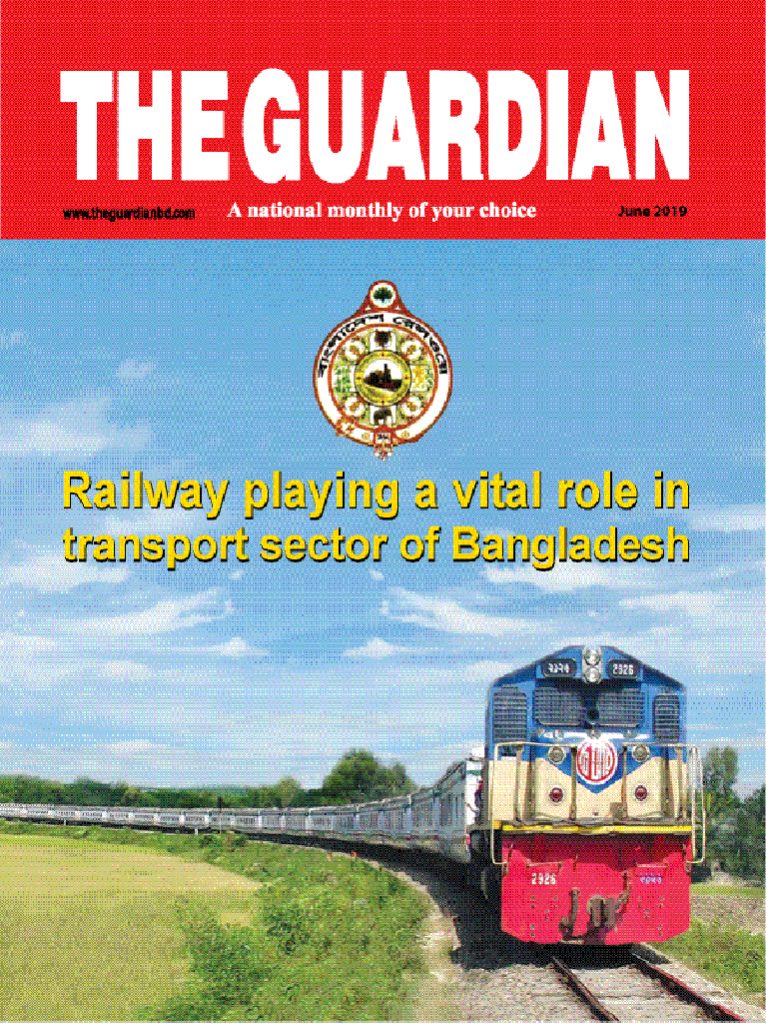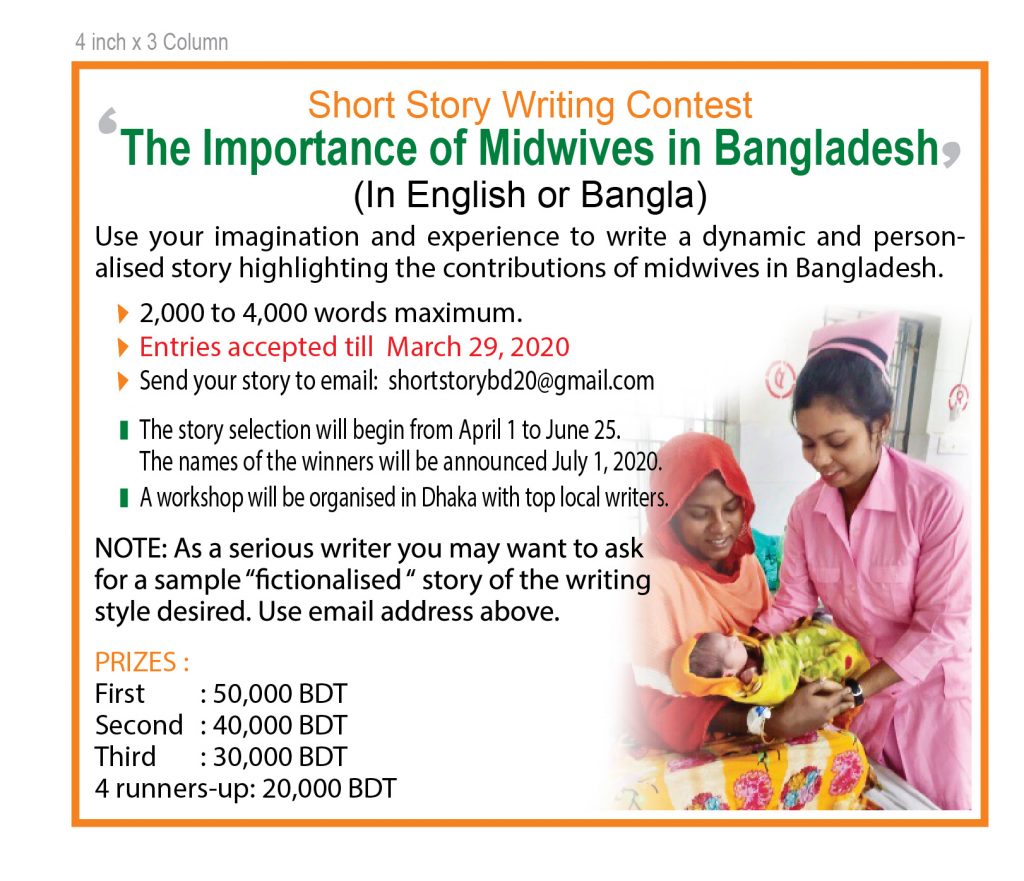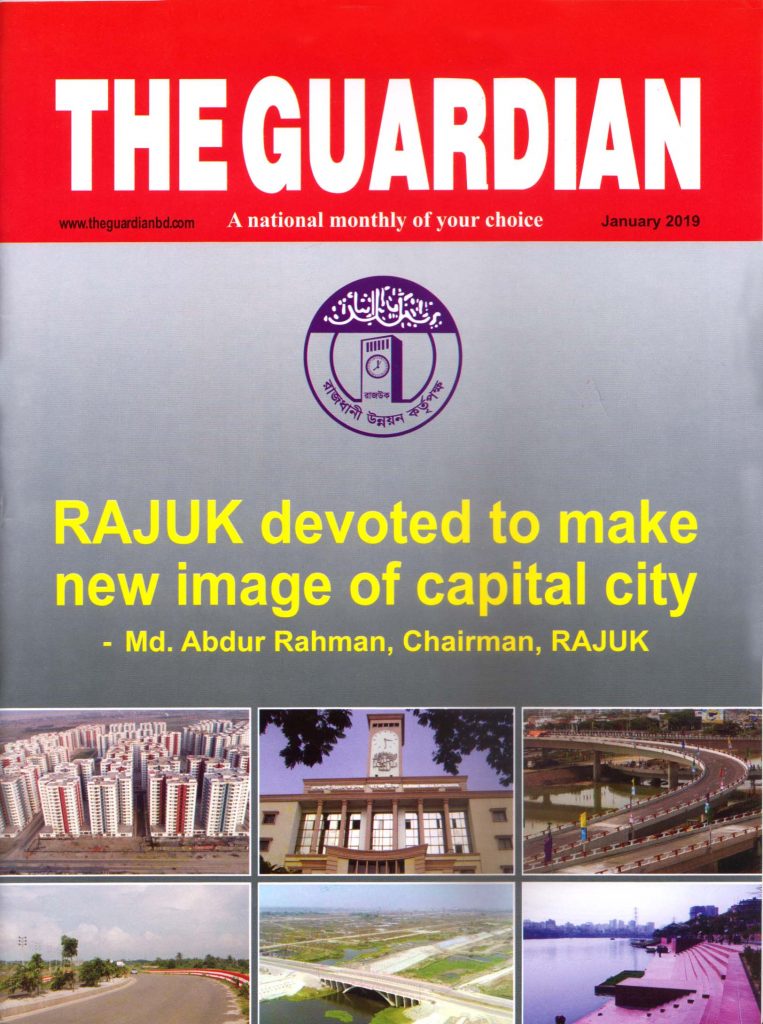Bangladesh is primarily an agrarian country. It has been blessed with one of the most fertile lands in the world. Among Asia’s top-ten rice producing countries, Bangladesh stands fourth. Bangladesh inherits this excellent agricultural background from the prehistoric days. Bangladesh is also prominently known to the world as a country of rivers, because over 200 rivers, canals, their distributaries and tributaries are flowing across the country. So, as a nation we are very fortunate and proud of all these natural resources and opportunities, gifted by the Almighty Allah. Allah has made our nation fortunate and proud, bestowing on us with one of the world’s most fertile lands, sufficient waters and creative human resources.
In view of having all these wonderful natural resources and opportunities, we should have been a food-surplus country long ago and able to export various food grains, especially sufficient rice abroad. But, due to paucity of capital and lack of knowledge about new inputs and technologies, our yield per acre is not satisfactory compared to other rice producing countries of the world. It, however, does not mean that our successive governments have not done anything to reach the goal. Of course, the governments have tried and taken continuous efforts to attain the goal. And the present government is also giving serious emphasis on the development of agriculture and currently the government has taken an initiative to export some quantity of surplus rice abroad.
We know northwest Bangladesh especially the region of Rajshahi and Rangpur is called the granary of the country for producing surplus food grains. So, this region always stands an important factor in our national economy for agricultural productions. In spite of the fact, this region remained neglected for long. At long last, in the late eighties of the last century the government realized it properly. As a result, Rajshahi Krishi Unnayan Bank (RAKUB) was created in 1987 with the aims and objectives to ensure sustainable developments in agriculture and rural economy of the northwestern region of Bangladesh. Accordingly, RAKUB launched operations with 253 branches of Bangladesh Krishi Bank. Such an unprecedented beginning was considered a milestone that a bank started with 253 branches from the day one. By utilizing this extraordinary journey, RAKUB could have been an excellent bank in the country. But, RAKUB could not do it to that extent.
Since its journey as a public bank from 1987, many luminaries or high officials of the government had ornamented the post of chairman and many highly experienced bankers had been the managing directors of RAKUB. But, the reality was that the bank was moving lamely for long over 20 years, until the joining of present chairman on the 22nd of July 2010. The bank got no own premises for its head office, its number of branches was not increasing expectedly, amount of authorized and paid-up capital was small, loan amount or disbursement capacity of loan was poor, number of manpower and other relevant facilities were quite insufficient to run the functions smoothly. So, the aims and objectives of the bank, for which it was mainly created, remained unfulfilled in real sense of ensuring sustainable developments in agriculture and rural economy and also of providing expected services to the people in the region.
Bangladesh, however, gained a new experience in the episode of one-eleven that ultimately influenced the political parties to bring in a positive change of their political thoughts and philosophy for winning the national elections of 2008. At that challenging situation, in her election Manifesto, Awami League President Sheikh Hasina, by her charismatic leadership, inspired the whole nation towards a new dream of a digital Bangladesh as well as of a middle income country through her Vision-2021 and her vision brought a ballot revolution in Bangladesh and Awami League won a landslide victory.
The Vision-2021 especially reveals that the people of Bangladesh will choose their government freely, get services from the government without hassle, enjoy freedom from fear and intolerance, live with dignity. In the vision every citizen is assured of social justice, environmental protection, human rights, equal opportunities, with the commitment that the rule of law and good governance will flourish. And thus Bangladesh will be made a liberal, progressive and democratic welfare state and a middle income country, where poverty will be drastically reduced, and where citizens will be able to meet their basic need, and where development will be on fast tract with ever increasing rates of growth.
Since the assumption of offices on 6 January 2009, Prime Minister Sheikh Hasina along her colleagues started working with her commitment to implement her Vision-2021 and to attain her goals. Despite the fact, from the beginning of her government, there were criticisms against some activities or failures of her government, and even it has been more since her forming government for third term after the elections of 5th January 2014. But, without paying heed to those criticisms, the government remains committed since 2009 to materialize Vision -2021 into a reality and has been taking measures one after another for the development of every sector and every institution.
Accordingly, the Board of RAKUB has been formed with the highly experienced professionals of relevant fields, where a highly capable educationist of international repute, Professor Dr. M. Shah Nowaz Ali, has been made chairman of the board. Along with the formation of this high profile board, a strong management team of bankers are formed, where Managing Director of RAKUB, including the present Managing Director, has been appointed one after another among the committed as well as highly experienced bankers of the country, to run the management of the bank efficiently and effectively.
Since the formation of the board, RAKUB, led by its skilled chairman, has been working with full commitment to become an active partner with the process of the government in materialization of Vision-2021. In view of this, the bank has already disbursed a substantial amount of loan and has also set a new target of loan disbursement to reduce poverty by creating new job opportunities and to ensure sustainable growth and development in agriculture and rural economy in northwest Bangladesh, which is considered a major factor for achieving Vision-2021. Besides, the bank has expanded its banking activities to support all kinds of banking endeavours, including individual, public, private or public-private entrepreneurship development across the region. It has also expanded its business areas by creating new investment portfolio, products and banking facilities for all levels of people.
Side by side banking activities, RAKUB, led by present chairman, is also committed to corporate social responsibility. It is learnt that realizing the spirit of our great Liberation War and the mandates of our Constitution, RAKUB serves to uphold the social causes, by providing financial assistance to poverty alleviation, women empowerment, sports and cultural activities, education, healthcare, social awareness building and also contributes to redressing the human miseries, especially to the poor freedom fighters and poor families of martyr freedom fighters and down-trodden section of the society, including the poor aborigines of the region. As a result, evaluating all these outstanding contributions of Dr. M. Shah Nowaz Ali, at the end of his first term, he has been reappointed chairman of RAKUB for one term more to serve the bank.
There is no way to deny that RAKUB, under the able leadership of Professor Dr. M. Shah Nowaz Ali, is making new history. The bank, as a committed partner of the government in the process of making digital Bangladesh, has already undertaken a programme to introduce a real-time on-line banking system that would start in 2015. To make success of this programme, by this time, RAKUB has been implementing a Five-Year ICT Plan and 186 branches of 376 have already been computerized and the rest are under process to be computerized by March 2015. Another project for ‘Core Banking Solution Implementation Plan’ has been undertaken this year by a cost of Tk 1035 millions, which is expected to be completed by 2018.
These are not the only successes that RAKUB has already achieved. To meet the shortages of manpower, the bank has taken initiative to recruit 1686 more new officers and staff. Already a good number of officers and staff have been appointed and efforts are going on to recruit the rest soon. Currently, the number of branches of the bank rises to 376, connecting every remote corner of the region. Amount of authorized and paid-up capitals is also increased expectedly. Amount of deposit and capacity of loan disbursement have increased manifold. Since its inception, RAKUB has been suffering the crisis of its own premises. Now its own building is constructed and inaugurated in 2011.
So, in this issue we are reflecting all these stories of successes, limitations and future plans of RAKUB. And to inform our readers and our policy makers about the real scenario of RAKUB, this issue contains interviews of chairman, present and one former managing directors and articles of different other officers and experts of RAKUB, including the article of one director of RAKUB who is also a senior professor of Rajshahi University. All these valuable stories focus on history, latest scenario of activities, developments and achievements, problems, prospects and future plans of RAKUB.
Through these stories we realize, whatever be its past, today RAKUB has brought a revolutionary change in its overall activities and has set a new milestone of institutional development to implement its aims and objectives. Now, let us hope that the government will give more attention towards the development of RAKUB and northwest Bangladesh as a whole, so that RAKUB, under the dynamic leadership of Dr. Shah Nowaz Ali, can usher in a new era of development in northwest Bangladesh.









